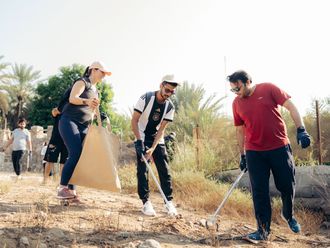It is that time of the year again when Muslims all over the world will be united in abstaining from food, drink, nourishment and sexual relations from dawn to dusk. I can reminisce when I was at school, my non-Muslim friends would be filled with pity and sympathy. I was often asked: “How can you survive without food or drink for so many hours?!”
No doubt fasting can be difficult and tiring, especially in the long summer days, but this is the challenge that is meant to strengthen the willpower. It is important to understand that fasting does not only consist of certain abstentions. I think that sometimes people tend to forget that fasting has a much deeper meaning and purpose and that is to develop and refine one’s character and relationship with God.
Fasting in the month of Ramadan is one of the five pillars of Islam and it is an obligation for all adult Muslims to fast. Nevertheless, there are some people who are exempt from fasting. These include: The sick, elderly, travellers, breast feeding and pregnant women and those who are menstruating. Although children are not obligated to fast, many choose to do so.
As a Muslim, I always look forward to the month of Ramadan because there are many lessons to be learnt. Ramadan is a time of spiritual reflection when Muslims are required to cleanse the soul from negative characteristics and nurture it with good characteristics. The Arabic word for fasting is sawm. This literally means “restraint” and “self-control”. Abstinence from fulfilling the physical desires is a catalyst for self-discipline. It is through self-control that a Muslim practices good manners, good speech and good habits. Abstention from certain things in secret and public is also a manifestation of a Muslim’s true faith in God and obedience to Him. American writer Jeffrey Lang said: “We can observe a Muslim performing the other four pillars, but, in addition to himself, only God knows if he is staying with the fast.”
Fasting inculcates the qualities of empathy and compassion towards the less fortunate. When a person on a fast feels the pangs of hunger and thirst, this evokes a sense of social responsibility and encourages a Muslim to be charitable. During Ramadan, Muslims reflect upon and appreciate the blessings they have in life — basic necessities such as food and water that are sometimes taken for granted. We never truly know how to appreciate something until we lose it, as writer Cynthia Ozick said: “We often take for granted the very things that most deserve our gratitude.”
Ramadan is a time when Muslims increase in worship, abundant prayers and supplications in a quest to draw closer to God. Some Muslims spend at least some of Ramadan in Makkah, Islam’s holiest place, where they will perform the Umrah (lesser pilgrimage), which is always a humbling and spiritually invigorating experience. The rituals of Umrah are literally following the footsteps of Prophet Abraham, his son Esmail and wife Hajar.
I often wonder why is it that despite the striving to perform the many rites and rituals, there is such a decline in graciousness towards one another? Surely, the epitome of obedience to God is about being considerate towards others and having a good character. A core teaching of Islam is to behave well towards all people and to wish for others what we wish for ourselves. Ramadan is a time to demonstrate these traits until they become a habit. Writer and philosopher Elbert Hubbard very eloquently stated: “Habit is a form of exercise.”
The self-control exercised by Muslims during Ramadan is also about restraining the soul from succumbing to the ego and nurturing the soul to be obedient to God and filtering out bad habits. It is through this self-control that Muslims foster virtuous characteristics.
Aristotle said: “We are what we repeatedly do. Excellence, then, is not an act, but a habit.”
Ramadan is essentially about purifying the soul and rejuvenating the faith. This inner faith should then be exhibited as outward morality.
Prophet Mohammad (PBUH) said: “Whoever does not give up evil speech and evil actions, Allah is not in need of his leaving his food or drink.”
In the Quran, God says: “O you who believe, fasting has been prescribed for you as it was prescribed for those before you, so that you may attain God consciousness.”
Morality is a core principle in Islam which must be perfected. This is done by striving to adopt certain universal principles such as sincerity, honesty, justice and compassion towards people. Unfortunately, morality is often overshadowed by an intense focus on rites and rituals. For some people, faith is a remote and abstract entity and does not necessarily have any bearing on the outer character. However, the Quran consistently describes true believers as those having faith and performing righteous actions. Adhering to the five pillars of Islam and having faith should be intertwined with outward morality.
In our post-modern consumer society, many people are self-centred, there is a lack of concern and compassion for others and this weakens the foundation of a society. This is against the precepts of the teachings of Islam. Ultimately, if Ramadan is about having an impact on people’s inner qualities, then this must be manifest in our behaviour towards others.
Sajda Khan is a British writer and a doctorate candidate, researching the relevance of Islam in contemporary society. You can follow her on at www.twitter.com @SajdaKhanUK










